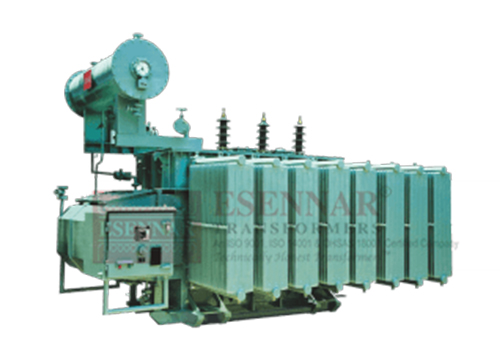
The distribution of electrical power depends on transformers because they enable voltage adjustments needed for secure and efficient power transfer. The cast resin transformer stands out due to its combination of durability alongside safety features and minimal maintenance needs. Cast resin transformers provide a solid insulation system that allows them to serve indoor and environmentally critical applications unlike conventional oil-filled transformers.
WHAT IS A CAST RESIN TRANSFORMER
Epoxy resin serves as insulation for windings inside cast resin transformers which do without oil or liquid coolants. The design prevents oil leakage while decreasing risk factors that could cause fire and ensures maximum safety and environmental friendliness. The main and auxiliary windings inside cast resin transformers receive resin encapsulation which defends them from environmental moisture while shielding them against dust as well as outer contaminants. Natural air convection and forced air cooling are responsible for heat dissipation which eliminates the requirement for oil-based cooling systems.
HOW DOES A CAST RESIN TRANSFORMER WORK
The working principle of a cast resin transformer is similar to that of conventional transformers. It adjusts the voltage between primary and secondary windings to match power distribution needs. The machine performs voltage conversion by inducing magnetic fields within the transformer core materials. The device regulates heat by using either passive air-cooling methods or active heat regulation devices since it excludes liquid cooling systems. The epoxy resin insulation system creates a total covering for windings which halts moisture absorption and reduces possible electrical failures and short circuits.
ADVANTAGES OF CAST RESIN TRANSFORMERS
Fire Safety & Non-Flammability: The absence of oil in cast resin transformers ensures their non-flammability as well as total elimination of fire-related risks. Their use in enclosed spaces and indoor locations and high-rise buildings makes this technology ideal due to its properties.
Environmentally Friendly: Cast resin transformers maintain environmental safety because their operations exclude the hazard of contaminating water or soil systems. The equipment needs minimal care which leads to reduced operational expenses.
Moisture & Dust Resistance: The epoxy resin insulation function acts as a complete protective seal around windings to provide resistance against environmental moisture and dust and corrosive agents. Such transformers suit coastal locations together with industrial operations and regions that face severe weather conditions.
Low Maintenance & Longer Lifespan: Compared to oil-filled transformers, cast resin transformers require less maintenance because of its modular design and fewer components in its structure. It also has better resistance to aging and mechanical stress.
Compact Design & Easy Installation: Due to their compact and lightweight design, cast resin transformers require less installation space and can be mounted closer to the load centre, improving efficiency.
APPLICATIONS OF CAST RESIN TRANSFORMER
The distinctive benefits of cast resin transformers make them suitable for adoption in commercial installations of malls, hospitals, office towers, and hotels. Industrial facilities have incorporated this transformer device for their operations. These devices find a primary use in renewable energy developments with special concentration in wind and solar projects.
Cast resin transformers provide a dependable safety solution that operates as an eco-friendly transformer alternative to traditional oil-filled transformers. The elevated initial cost of purchasing cast resin transformers will pay off through their extended operational period and superior operational efficiency which leads to long-term cost benefits. The ideal transformer for indoor commercial use as well as high-traffic spaces and environmentally sensitive areas is the cast resin transformer.
Related Link: TYPES OF POWER TRANSFORMERS AND THEIR APPLICATIONS